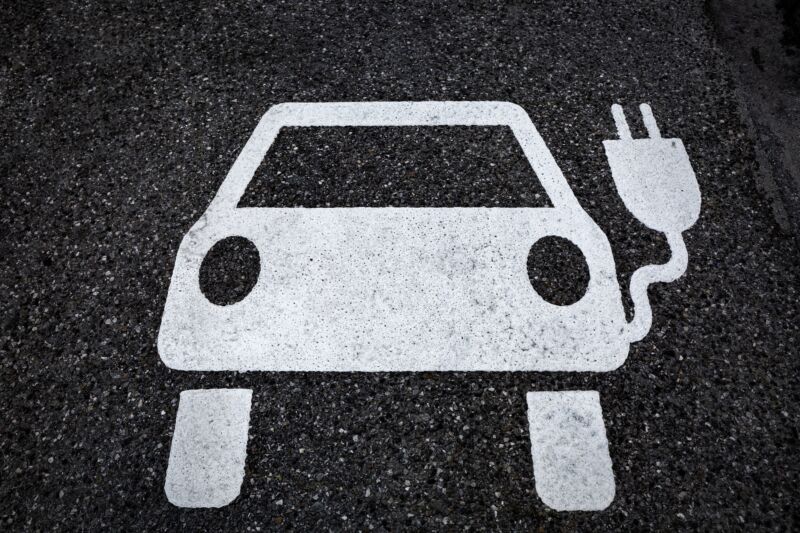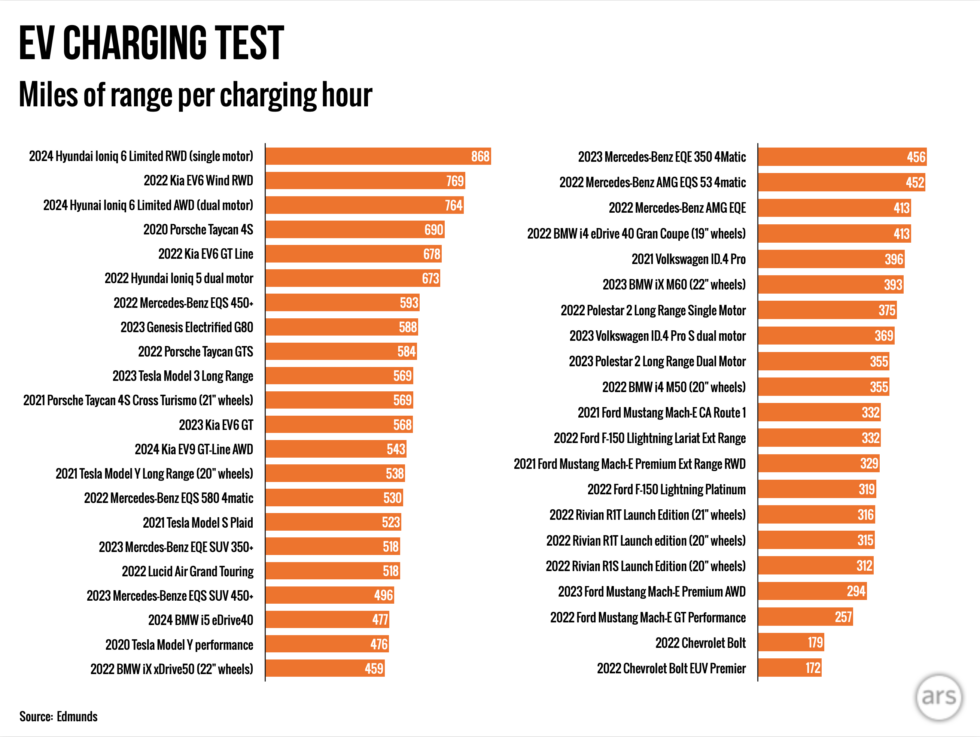[ad_1]

Getty Photographs
Even supposing most of us typically drive brief distances once we get in our automobiles, the time it takes to fast-charge an electrical car stays of paramount significance to potential EV patrons. It is laborious guilty them—for greater than a century, motorists have come to anticipate brief refueling stops, and till somebody truly lives with an EV for some time, it may be laborious to make that paradigm shift. And naturally, not everybody has the flexibility to slow-charge an EV at residence or at work, your creator included.
So with that in thoughts, the patron recommendation publication Edmunds determined to check a complete bunch of EVs to seek out out which one provides probably the most miles of vary within the fewest minutes attainable.
Working with the automotive consultancy P3, Edmunds examined 43 totally different EVs, operating down their batteries on its EV range-testing path to calculate the automotive’s effectivity, then fast-charged them from 10 to 80 p.c, measuring peak and common charging energy and calculating charging losses within the course of. Edmunds says it did this as a result of automakers are inconsistent in promoting fast-charging occasions—some listing cost occasions from 10 to 80 p.c, whereas others merely say their automobiles can add 100 miles (160 km) of vary in a given time.
The Hyundai Ioniq 6 is the quickest fast-charging EV
Based mostly on Edmunds’ knowledge, street journey warriors ought to beat a path to the single-motor Hyundai Ioniq 6. Hyundai’s 800 V E-GMP platform (additionally shared by Kia and Genesis) was designed to be each very environment friendly and really fast to DC-charge, and Edmunds discovered that this mannequin might add 868 miles (1,397 km) of vary per hour. Put one other approach, Edmunds discovered it might add an additional hundred miles of vary to the single-motor Ioniq 6 in just below seven minutes, with a peak energy of 242 kW and a median charging energy of 210 kW. Nevertheless, the Hyundai did have comparatively excessive charging losses of 9.9 p.c.

E-GMP EVs got here in at second and third as nicely—the single-motor Kia EV6 Wind charged at 769 miles (1,238 km) per hour, with the dual-motor Ioniq 6 including 764 miles (1,230 km) per hour. These EVs additionally had fairly excessive charging losses, as did Porsche’s (additionally 800 V) Tacans.
Another EVs had greater than 10 p.c charging losses, together with fashions from Lucid and Mercedes-Benz, however the actual standout was Polestar: each fashions examined confirmed 17.1 p.c charging losses.
Smaller, cheaper EVs have been principally absent from the assessments—there isn’t any Kia Niro, Hyundai Kona, Nissan Leaf, or Mini Cooper SE represented. However the Chevrolet Bolt and its barely stretched EUV sibling have been examined and trailed the pack. The Bolt has many charms, however speedy recharging is not certainly one of them, and each Bolts peaked at simply 54 kW and averaged 46 kW, which means you’d must plug one into a quick charger for greater than half an hour so as to add again 100 miles of vary.
[ad_2]